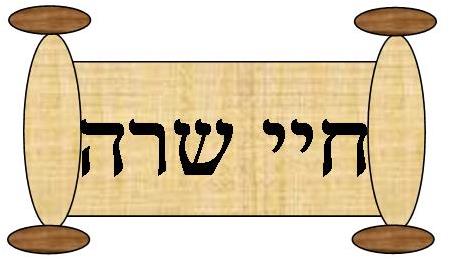The most difficult of the ten tests that were presented to Avraham by G’d was the Akeidah (the binding of Yitzchak). He was told by G’d to take his beloved son Yitzchak and bring him up as a “burnt offering.” Although G’d had previously promised Avraham that Yitzchak would be the future Patriarch, he did not question G’d’s command. He submitted to G’d’s Will without hesitation because his sole objective in life was only to do the Will of G’d. When G’d saw that Avraham was willing to slaughter his son he was told to withdraw his hand and not bring any degree of harm upon Yitzchak. A ram appeared to be used in the place of Yitzchak as sacrifice. As it states, “…Behold, a ram! –afterwards caught in the thicket by its horns.” Rabbi Yosef Kalatsky explains: It is because of Avraham’s unparalleled spiritual achievement at the Akeidah that the Jewish people are able to withstand the intense level of prosecution by satan that is in effect on Rosh Hashanah, the Day of Judgment. The Gemara in Tractate Rosh Hashanah tells us that when the ram’s horn (shoar) is sounded, satan is silenced. The merit of the Akeidah dispels every level of prosecution that is brought against the Jewish people until the end of time.
Sarah died in Tishrei, 2085 (Sept. 1677 b.c.e.) when she was 127 years old. She died in Chevron. The Akeidah was the cause of Sarah’s death. Sarah died immediately after the Akeidah; incidentally, it is by this fact the Akeidah is dated. This is what happened: Satan saw that he could get nowhere in his efforts to persuade Avraham and Yitzchak, since neither of them would pay attention to his words. He therefore disguised himself as an old man riding on a camel (Sifetei Cohen), and went to Sarah, who was waiting in Beer-sheva. He said to her, “Don’t you realize what has happened to you? Your husband took your precious son, built an altar, bound his hands and feet, and offered him as a human sacrifice. Yitzchak screamed and pleaded for mercy, but he had no pity.” Upon hearing this, Sarah cried out in a bitter voice, banging her head on the wall, so great was her misery. She wandered through the hill country toward Chevron, asking everyone she encountered if he had seen them. She sent her servants to the academy of Shem and ‘Ever and to other places, to see if they could find them. When Sarah arrived in Chevron, she sought out the three giants who lived there, Achiman, Sheshai and Talmai, and asked them if they had seen an old man together with three younger men. They replied, “We saw an old man and a younger man on one of the mountains. The young man was bound head and foot, and the old man had a knife in his hands. A cloud then covered the mountain and we could see no more.” Sarah was beside herself with grief. Suddenly ha-satan appeared again, in a different disguise. He asked why she was weeping so bitterly, and she told him what had happened. He said, “Don’t you believe that old man (referring to his previous disguise). He’s a known liar. I just saw Yitzchak alive and well.” When Sarah heard these words, she was so elated that she went into shock and died. (Rashi; Pirkei Rabbi Eliezer; Sefer HaYasher).
The Torah repeats, “[These were] the years of Sarah’s life.” These words appear to be redundant. The Torah is teaching us that Sarah was not meant to live longer than this. One should not think that she died only because of her shock at hearing ha-satan’s words. Actually, she had been destined to live this number of years and no more. G-d allows a tzaddik to live out his allotted time; He does not take away even a single day.The direct cause of her death, however, was the shock. (Yafeh Toar)
Prepared by Devorah Abenhaim







